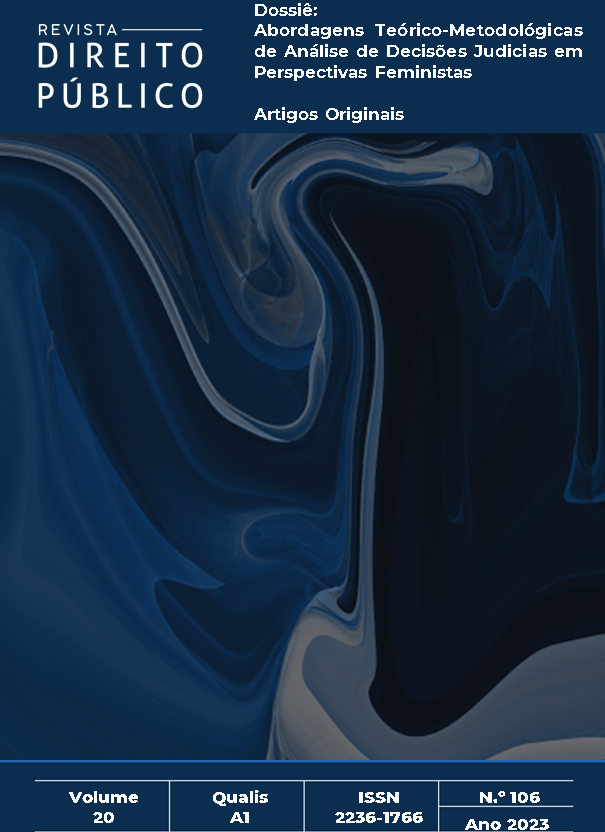INTERSECTIONALITY IN THE CASE BARBOSA DE SOUZA ET AL. V. BRAZIL
THE NEED FOR A LOOK BEYOND THE GENDER PERSPECTIVE
DOI:
https://doi.org/10.11117/rdp.v20i106.7141Abstract
This paper aims to identify possible contributions of Case Barbosa de Souza v. Brazil for the protection of black women in cases of gender-based violence in Brazil. It seeks to analyze whether (and how) the Inter-American Court of Human Rights (IACHR) used intersectionality in the aforementioned case. The article is developed from the context of the emergence of intersectionality and the use of this tool in the interpretation and application of the Law, especially in the protection of vulnerable women, by making it possible to uncover other dimensions of subordination obscured by the gender perspective. Then, it focuses on the development of the gender perspective in the jurisprudence of the IACHR, which has established parameters for combating this type of violence, understanding the role of state institutions in reproducing stereotypes that hinder - or even prevent - the protection of Latin American women. Finally, it investigates whether, in the Barbosa de Souza case, there was an intersectional analysis to expand the protection of black women, especially because Márcia, a young black woman from a low social class, represents this group of women with the highest rate of victimization by feminicides in Brazil. The research adopts the deductive method and is developed in a descriptive and exploratory way, through bibliographic and jurisprudential review. It concludes that, although it does not deepen the analysis of the intersectionality between racism and sexism in the specific case, the IACHR considered these aspects in the establishment of reparations, which can impact on greater protection of black women in cases of gender-based violence.
Downloads
Published
How to Cite
Issue
Section
License
Copyright (c) 2023 Direito Público

This work is licensed under a Creative Commons Attribution-NonCommercial 4.0 International License.
O(s)/A(s) autores(as) dos manuscritos submetidos concorda(m) com as regras a seguir:
1) Todos os autores e autoras participaram do trabalho, são responsáveis pelas ideias e conceitos nele emitidos e atestam sua conformidade com os princípios éticos exigidos.
2) Todos os autores e autoras concordam com a forma final do trabalho e em ceder os direitos para publicação nos canais de publicação da Escola de Direito do IDP.
3) Todos os autores e autoras informam que o manuscrito é de sua autoria e assumem a responsabilidade pelo trabalho, declarando que a obra a ser publicada não infringe quaisquer direitos de propriedade intelectual de terceiros.
3.1) Em caso de submissão simultânea, além da reprovação imediata do artigo e comunicação ao(s) respectivo(s) periódico(s), a Revista Direito Público se reserva o direito de não receber novas submissões de todos os autores implicados pelo prazo de 2 (dois) anos, contado a partir da data de ciência do fato.
4) Todos os autores e autoras autoriza(m) a edição de seu trabalho e cede(m) à Escola de Direito do IDP os direitos de autor para reproduzir, editar e publicar ou veicular o citado trabalho em qualquer forma midiática, resguardada a autoria, em particular sob forma digital, em arquivo eletrônico online na Internet, bem como armazená-los em seu repositório de acordo com o desenvolvimento do processo editorial. Esta concessão não terá caráter oneroso para a Escola de Direito do IDP, não havendo remuneração sob qualquer modalidade pela utilização do referido material, tendo este o caráter de colaboração científica.












